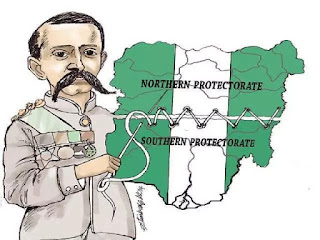OUR QUEST TOWARDS FOOD SECURITY
No nation could ever attain meaningful development without first attaining food security. Developed nations after achieving food sufficiency focused their energies into other development parameters. When you have available and affordable food, citizens can explore their full potentials economically without the burden of a chunk of their earnings spent on securing food items. Besides economic advantages of food sufficiency, a food secure nation is also a healthier one as what we eat determines our physical health and ability to fight off diseases, malnourishment in children and pregnant women that translate into infant and mortality rates.
Nigeria is country blessed with land, water and human resources that could not only feed itself but the entire West African sub-region. Form the edges of the Sahara down to the banks of rivers Niger and Benue, through the jungles of the rainforest unto the ocean shores, we produce multitude of cash and food crops. Thousands of metric tons of important grains like rice, wheat and maize could be produce in most regions of the country besides the cocoa, cassava, timber and rubber just to mention a few. Few decades ago Indonesia took away seeds of the palm tree from Nigeria under the leadership of president with the aim of making it an export commodity and by 2012 it produces 35% of the total world production covering over 12 million hectares. As far back as 1870 Nigeria was the leading producer of Palm oil in the world and now struggling at the 5th position.
The need to refocus on agricultural production cannot be overemphasized, and as an eye opener we have seen how in mere three years when the current government introduces the anchor borrower program on rice production, the milestones achieved had been unprecedented. Even though it is only a few states that took up the program, it has nudged us as leading producers in the continent, crashed price in the local market with surplus grain in our markets. This summer was one of the lowest and most stable in food prices all because of the last three years commitment to agriculture.
The recent pronouncement by the President instructing the CBN to halt foreign exchange for all food importers, could in a different scenario be applauded as the best way in ensuring food security, but with fragile and half-baked agricultural policy on the ground, it will not augur well for the masses and the economy. To boost confidence in farming, the federal government must inject more funding and create necessary subsidies for small, medium and large scale farmers before advocating for such policy implementation. Developed countries like America would rather go to trade war with the rest of the world combined than remove farm subsidies, as they consider food production (for both local consumption and export) more important to the nation’s welfare than other business products. The reason I said the present government agricultural policies were half-baked is simply because, despite the shortages of farming soft loans, the lack of a comprehensive marketing board for farm produce will never instill the confidence needed for more people to join farming as business. This summer, farmers are complaining of low prices and glut of grains in the market. Have we had a marketing board that could buy farmers surplus at profitable prices it will certainly improve and stabilize prices in the market.
One of the leading grains we consume in this country is wheat, which is central in every regions diet as bread, cakes and other flour derivatives. In just about two local governments in Kano State the daily consumption if bread is worth 80 Million Naira, extend that to whole nation. The demand for wheat in Nigeria stands at six million metric tons a year while our total production wasn’t more than 10,000 metric tons i.e we produced a meager 0.6%. Bridging this gap need a herculean effort from both government and farmers in terms of funding, new technology and research for grains adaptable to our weather and soil. Unfortunately the Federal Government has zero-intervention at present and yet is calling on halting the foreign exchange for wheat importers. If this policy is not carefully reviewed to reflect the reality, it could plunge Nigeria into food crises and unrest. Allowing importers to source out their foreign exchange in the parallel market for importation of wheat will further bring chaos to the already unstable market price and increase the cost astronomically beyond the reach of masses.
With the current economic downturn as more people slide into poverty line coupled with the incessant and widespread insecurity, if food insecurity is added to the conundrum I fear the threat it would pose to our democracy. General Babangida banned importation of wheat in 1987 when we were producing 50,000 tons a year (five times what we are capable today) and within a short time the production tripled and reached between 150-180,000 tons as the right incentives were in place. There were rumors of an international cartel that colluded with local people to kill wheat production in Nigeria. If thirty years ago we can produce 180,000 tons of wheat, why are we just producing 10,000 today and why wouldn’t the federal government apply the anchor borrower program similar to the one on rice?
Today, the leading producers of wheat in the world are the economic giants, China, USA and Russia and in Africa, Nigeria is not even among the top ten producers. Morocco that stood as the second largest producer in the continent produce about six million metric tons, ironically the amount of wheat Nigeria needed yearly. Even Libya, which is at war, was able to produce 200,000 tons in 2014 (twenty times what we produce today). At this juncture Nigeria must do all it can if the government is serious in reviving agriculture in the country to refocus its energy on wheat production by giving more priority through meaningful intervention that could turn around production to significant level in the next decade. It will also be a calculated risk with multiple dimensions to withdraw foreign exchange for importers of wheat when we are only producing a meager 10,000 tons.
There are food items that could survive and thrive even if outright ban on their importation is allowed, take tomato paste for example; few household across the country really relies on it, as we are a nation that uses raw tomatoes more frequently. We don’t import raw tomatoes but its paste, therefore banning its importation will encourage investors establish factories which will naturally boost local production, create employment along the way as the tomato industry grow while at the same time saving our foreign exchange. That would be a win-win situation unlike wheat, which if the policy includes it, will certainly be lose-lose situation for our ailing economy and low purchasing power of the masses at the moment.




Comments
Post a Comment